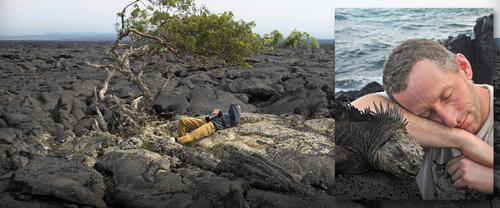
Dear YIBS community,
Please join us in attending the Edward P. Bass Distinguished Lecture: The World Without Evolution? with Andrew Hendry
Location: O.C. Marsh Lecture Hall, Yale Science Building (260 Whitney Ave)
Typical considerations about rapid evolution and its importance in structuring the world around us emphasize situations where evolution is causing rapid changes in organisms and environments. Hendry contends that the primary role of evolution is in resisting change. Evolution is why organisms look the same not just across years and decades but across centuries and millennia. Evolution is why you can recognize a coyote as a coyote from Panama to Alaska. Evolution is the reason that your forest walk looks the same from one year to the next. This evolution in action is why our cows can digest their food, and our lakes are clear, and our soils are productive. Without evolution, all of this would collapse within days to weeks to years. Without evolution, the world would be unrecognizable within our lifespans. The only way to illustrate the all-pervading influence of evolution on our lives and our worlds is to ask: “What would happen if evolution stopped today?” Much as Alan Weisman’s book “The World Without Us” asked what would happen if humans suddenly vanished from the world, Hendry draw on real-world studies and experiments to ask what would happen if evolution stopped tomorrow.



